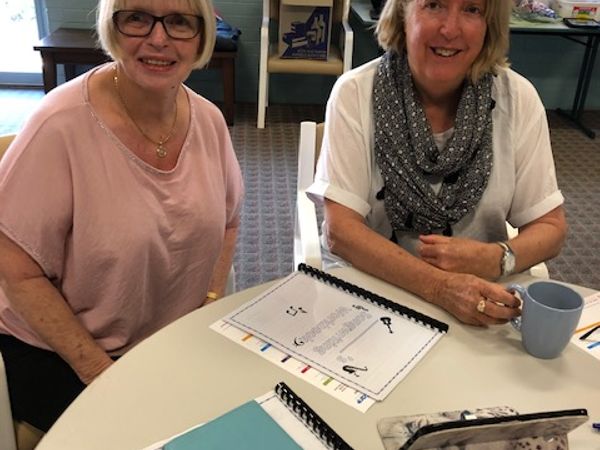This project aims to provide proof-of-concept that, in addition to improving self-reported mood and quality of life, systematic engagement in creative activities produces measurable changes in brain and cognition, and to establish collaborations with industry partners that will support funding applications. CI-Baker has designed a well-established group song-writing intervention that has been implemented in people with dementia, their carers, and healthy older people (4,10). It has good uptake and retention, and documented benefits on mood and wellbeing in self-report and practitioner assessments (3). We will implement CI-Baker’s song-writing intervention in older adults living independently within retirement or aged-care facilities to establish immediate and short-term benefits on brain and cognitive measures and assess dose-response effects.
The project has 3 aims:
Aim 1: How does engagement in a group song-writing intervention impact neural functioning and cognitive and emotional processes in independently-living older adults? We will evaluate cognitive and emotional functioning using well-validated experimental tasks developed by this team and neural functioning with resting-state and task-based electroencephalography (EEG) using a portable EEG system.
Aim 2: Is there a dose-response effect of engagement in the group song-writing intervention? We will provide two 10-week intervention cycles (core song-writing activities, extension song production activities; 1,2), and assess brain and cognitive functioning before and after each cycle.
Aim 3: Are the benefits of engagement in the group song-writing intervention short-lived or protracted? A final assessment 10wks after the final intervention will evaluate lifecycle of effects.
Funded by The Priority Research Centre for Stroke and Brain Injury, University of Newcastle and The College of Human and Social Futures strategic network grant
